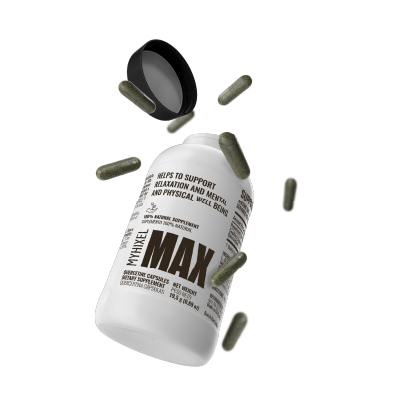Do you ever feel like you've finished sooner than you'd like? Well, it is more common than it seems: premature ejaculation is a very common condition that affects a large percentage of men at some point throughout their lives (Fernandez, 2014). Although there are many definitions, many experts refer to it as the inability to delay ejaculation during sexual intercourse, resulting in dissatisfaction for both the sufferer and his partner, as well as feelings of frustration and even disappointment. But it is a problem that can be solved even though many people avoid talking about it. It all depends on the root cause and the methodology used.
That is why throughout this article, we are going to focus on analyzing in depth the causes of premature ejaculation, its symptoms, the consequences (physical and psychological), how age influences this condition, the problems it generates in both men and women and, most importantly, how to prevent it and treat it in the most effective way possible.
CAUSES OF THE PREMATURE EJACULATION

When we talk about premature ejaculation we have to mention multiple possible causes. These causes are usually classified into two groups: psychological factors and biological factors. If we focus on the psychological point of view, there are several feelings that play a role, such as anxiety, stress and previous negative sexual experiences. For many men, these emotions play a key role. Pressure to perform in the sexual arena may be responsible for triggering an anticipatory ejaculatory reflex response (Pasha et al., 2020).

If we focus on the physical (or physiological) aspects, some studies point out that low serotonin levels accelerate ejaculation. But it is not the only factor, as certain medical conditions such as prostatitis, glans hypersensitivity and some neurological disorders have been observed to influence the development of this problem (Shindel et al., 2022). In another line, some researchers suggest that there is a genetic predisposition, as some men are more prone to experience premature ejaculation due to hereditary characteristics (Waldinger et al., 2002).

In addition to the psychological and physiological factors we have already mentioned, some research has shown that the intensity of premature ejaculation depends on some lifestyle habits that are considered unhealthy: excessive alcohol consumption, smoking and lack of physical activity
These are factors that negatively affect control over our ejaculation. Why? Our cardiovascular system is closely linked to sexual functioning, and poor blood flow (for example) contributes to a premature ejaculatory response. As you can imagine, investing in improving these habits is one of the keys to reducing the incidence of this problem.
SYMPTOMS OF THE PREMATURE EJACULATION
Although it may seem obvious, the main symptom of premature ejaculation is the lack of control over ejaculation, which implies that it occurs before or shortly after penetration. However, beyond the time, another important criterion is the frustration that this situation generates in the individual and his partner, so many experts mainly value the subjective perception of each one and how this feeling of lack of control affects the quality of intimate life.
As symptoms of lack of control, many men develop intense anticipatory anxiety. That is, they believe that the problem will recur in future encounters. This fear increases the level of stress and, paradoxically, aggravates the problem, because it creates a vicious cycle that is difficult to break (Rowland et al., 2011).
Another common symptom is hypersensitivity of the glans penis, which often goes unnoticed. In some cases, some men with premature ejaculation experience increased sensitivity in the intimate area, resulting in a faster ejaculatory response. It is believed that this symptom may be related to the unique anatomy of each individual, although it may also be due to a lack of progressive exposure to the phases that make up the encounter. In other words, a lack of control over one's own arousal. In the face of this symptom, there are a number of strategies that we will discuss later.
PSYCHOLOGICAL AND EMOTIONAL CONSEQUENCES OF THE PREMATURE EJACULATION

Dramatic as it may seem, for many men the psychological consequences of premature ejaculation are more negative than they appear at first glance. In most cases, they are aggravated if not properly addressed. In this sense, one of the effects that most men comment on is the decrease in self-esteem, as those who have this problem often feel little or no ‘fit’ in their performance in bed. In fact, in many cases, this generates insecurity and a progressive avoidance of intimate relationships, which ends up having repercussions on the relationship.

If we look strictly at emotions, the frustration that builds up from lack of control over ejaculation also leads to anxiety and, in some cases, depression. A study by Patrick et al. (2005) showed that men with premature ejaculation have higher levels of distress compared to those without the condition.
In addition to the impact on self-esteem and confidence, lack of ejaculatory control is also related to feelings of isolation. This is because many men avoid talking about the problem out of embarrassment, making it more difficult for them to get professional help. Another factor that increases levels of anxiety and depression is the lack of emotional support, which not only influences men's sex lives but also their well-being.
PREMATURE EJACULATION AND AGES
Contrary to what many may think, premature ejaculation can occur at all stages of life, from adolescence to old age. In fact, depending on the age of each man, the causes and consequences vary. Therefore, a person who may have had premature ejaculation at one point in time for one reason may develop it again later due to other factors if it has not been addressed in a comprehensive manner. Below, we tell you how it affects different age ranges.
Premature Ejaculation Problems in Adolescents
In adolescence, the most common factor leading to premature ejaculation is a lack of sexual experience and a high level of arousal. Some of the aspects that have to do with this lack of confidence and sexual experience are the anxiety to perform in their first sexual relations, the fear of comparing themselves with others and the excessive consumption of explicit content.
In the same vein, many young people feel that the lack of knowledge about ejaculatory control techniques and the nervousness of their first sexual experiences is a further reason for the development of this problem. It is therefore essential that young people have access to comprehensive sexuality education so that they understand their sexual response and learn to better manage sexual arousal and anxiety. On the other hand, self-knowledge about one's own sexual response is the best tool to prevent premature ejaculation from becoming a problem in adolescents' intimate lives.
Premature Ejaculation Problems in Adults
When it comes to adulthood, things change. Premature ejaculation in this case is influenced by multiple factors, from stress and anxiety to certain medical problems. In fact, in many cases, some men who have never had this problem suddenly begin to experience control problems due to changes in their physical health or psychological well-being.
In some cases, the reason for premature ejaculation is precisely another common sexual condition in men: erectile dysfunction. Some men, noticing difficulties in maintaining an erection, anticipate the moment of penetration and end up ejaculating earlier than desired, which reinforces the problem in the long term (McMahon et al., 2016). For this reason, it is advisable to address premature ejaculation in its entirety, taking into account both psychological and physical factors.
In addition, in other situations, some men develop undesirable sexual habits during their lifetime, such as masturbating quickly and frequently, which promotes an accelerated ejaculatory response. It is therefore important to learn new control techniques and seek professional help.
PREMATURE EJACULATION PROBLEMS IN MEN
Generally speaking, men who suffer from premature ejaculation often experience a great deal of frustration and embarrassment, regardless of their age, which affects their confidence. As you can imagine, this problem can cause them to avoid intimacy and develop insecurity in their relationships. As we mentioned earlier, it often leads to sexual anxiety, reinforcing the problem.

Some studies indicate that men with premature ejaculation have more difficulties in relationships due to the social pressure on sexual performance expected of men (Rowland et al., 2007). One of the therapeutic work that is often undertaken in this regard is the exploration of new ways of relating to oneself and one's sense of masculinity, as many men associate their virility with their performance in bed, which exacerbates the sense of failure.

Another aspect to take into account is that premature ejaculation generates avoidance patterns in a man's sexual life. Many men who fear a recurrence of the problem choose to avoid intimate relationships, which negatively affects their emotional well-being and their relationship with their partner. As a result, anxiety and guilt about the lack of sexual activity are further increased, aggravating the problem rather than solving it. However, it is important to remember that sexual intercourse goes far beyond penetration and that there are many ways to get pleasure and connect with our partner.
PREMATURE EJACULATION PROBLEMS IN WOMEN
Although premature ejaculation is a male problem, we cannot ignore how it affects women. As a result of premature ejaculation, many couples experience sexual dissatisfaction, and this leads to conflict and, as a result, decreased sexual desire. In some cases, women report feeling rejected or frustrated by the lack of intimate satisfaction, and this goes beyond the bedroom, affecting their life as a couple in general.
In more extreme cases, failure to address issues of dissatisfaction can lead to problems of estrangement and even break-up. Mutual understanding and teamwork are therefore essential pillars to overcome this condition together and thus strengthen the couple's bond.

In addition, some women confess to feelings of insecurity or believe that the problem has to do with their attractiveness or performance in bed. This misperception leads to low self-esteem in the couple and, as a consequence, increases unnecessary conflict. In fact, it is crucial that both partners understand that premature ejaculation is a condition that, fortunately, is solvable and can be treated with the right strategies. In short, it should not be seen as a problem of sexual compatibility between the two partners.

The best way to combat these problems is communication. By this we mean talking openly about expectations and also about difficulties in bed. Opening up with our partners helps more than we think to find solutions and relieve the pressure we men feel in bed. But many men admit to having problems talking to their partners about something as intimate as their sexuality, so many couples seek sex therapy, where they learn strategies to improve the intimate experience and reduce pressure on men's performance (McMahon et al., 2013).
HOW TO PREVENT THE PREMATURE EJACULATION
As we mentioned in the section on how premature ejaculation affects women, another key factor is communication with your partner about the times and rhythms of the intimate encounter. In order to reduce anxiety and fear of failure, it is necessary to establish realistic expectations and explore different forms of pleasure that go beyond penetration. Sex therapy should not only be reserved for when the problem already exists, but can also have a preventive nature, as useful tools can be obtained to improve ejaculatory control before it becomes a recurring problem.
To prevent premature ejaculation, it is not only necessary to adopt healthy habits, but also to implement certain strategies. Some recommended techniques are:
-
 Kegel exercises: These exercises often help to strengthen the pelvic floor and therefore improve control over ejaculation. However, it is not recommended without the supervision of a male pelvic floor expert, and these are not plentiful.
Kegel exercises: These exercises often help to strengthen the pelvic floor and therefore improve control over ejaculation. However, it is not recommended without the supervision of a male pelvic floor expert, and these are not plentiful. -
 Relaxation techniques: reducing stress and anxiety are key to improving sexual response.
Relaxation techniques: reducing stress and anxiety are key to improving sexual response. -
 Comprehensive sex education: enabling us to understand the physiology of pleasure and ejaculation and therefore to better manage arousal.
Comprehensive sex education: enabling us to understand the physiology of pleasure and ejaculation and therefore to better manage arousal. -
 Controlled masturbation techniques: a very good way to ‘train’ the body is to practice ejaculatory control during masturbation.
Controlled masturbation techniques: a very good way to ‘train’ the body is to practice ejaculatory control during masturbation. -
 Avoid overexposure to pornography: as we said before, pornography conditions ejaculatory responses and accelerates them for different reasons, so moderating its consumption can often be a good first step.
Avoid overexposure to pornography: as we said before, pornography conditions ejaculatory responses and accelerates them for different reasons, so moderating its consumption can often be a good first step. -
 Use of condoms: there are some types specifically designed to delay ejaculation, reducing the sensitivity of the glans and prolonging the act. The main drawback is that it also reduces the pleasure felt.
Use of condoms: there are some types specifically designed to delay ejaculation, reducing the sensitivity of the glans and prolonging the act. The main drawback is that it also reduces the pleasure felt. -
 Breathing techniques and mindfulness: another method is to learn to control your breathing and practice mindfulness.
Breathing techniques and mindfulness: another method is to learn to control your breathing and practice mindfulness.
HOW TO COMBAT THE PREMATURE EJACULATION
If before we gave you tips on how to prevent it, now we tell you how to combat it. Premature ejaculation can be tackled in many ways to improve ejaculatory control and thus increase the duration of intimate relations. These strategies range from medical treatments to lifestyle changes.
Treatments for the Premature Ejaculation
Psychological therapy
We have talked about sex therapy, but there are many approaches, so we recommend in particular cognitive behavioural therapies, which help to identify and modify thoughts and anxiety patterns that contribute to premature ejaculation.
Pharmacological treatments
Certain medications, such as selective serotonin reuptake inhibitors (SSRIs), are often prescribed to prolong ejaculatory time. However, many users report a number of unwanted side effects, such as loss of desire.
Training techniques
There are methods that help to improve ejaculatory control, such as star-stop and glans squeeze. However, these are techniques that do not improve control in the long term, they are only useful at the time they are performed.
Use of topical anaesthetics
There are creams and sprays that reduce glans sensitivity and delay ejaculation. However, it is important to use them sparingly to avoid excessive decrease in sensitivity, which negatively affects sexual satisfaction.
We have talked about sex therapy, but there are many approaches, so we recommend in particular cognitive behavioural therapies, which help to identify and modify thoughts and anxiety patterns that contribute to premature ejaculation.
Certain medications, such as selective serotonin reuptake inhibitors (SSRIs), are often prescribed to prolong ejaculatory time. However, many users report a number of unwanted side effects, such as loss of desire.
There are methods that help to improve ejaculatory control, such as star-stop and glans squeeze. However, these are techniques that do not improve control in the long term, they are only useful at the time they are performed.
There are creams and sprays that reduce glans sensitivity and delay ejaculation. However, it is important to use them sparingly to avoid excessive decrease in sensitivity, which negatively affects sexual satisfaction.
PREMATURE EJACULATION DEFINITIVE SOLUTION

Although there are several options on the market that we will discuss later, very few address the physical and psychological aspects that influence ejaculation control. The climax control product MYHIXEL Control has established itself as an innovative and effective solution for controlling ejaculation naturally and without side effects.
This method combines advanced technology with a training program based on cognitive-behavioral therapy developed by sexual health experts. Through your device and the MYHIXEL Play app, users learn to gain stamina and better control their sexual responses. How? With an 8-week program that guides you through a series of activities that you can perform thanks to the device. Unlike other techniques, this solution offers long-term results, allowing you to enjoy a fuller sex life.
VIEW SOLUTIONSolutions for the Premature Ejaculation
Throughout the article we have been analyzing all the possible techniques and practices that can help you fight premature ejaculation, but there are two alternatives that we would like to highlight. The first, which we have already mentioned, is couples therapy. Communication and cooperation with your partner are key to reducing anxiety and improving mutual satisfaction. So many couples find therapy the best way to improve the quality of their intimate life.

For others, there is a rare and well-known practice and that is tantric sex. It is a discipline that helps to develop a greater mastery of sexual energy and prolong pleasure. Through breathing and rhythm control, one can enhance the sexual experience and increase satisfaction for oneself and one's partner.

But it doesn't stop there! There are also some natural supplements that help you relax to avoid pre-relationship anxiety. An example could be the natural ingredient supplement MYHIXEL MAX, a supplement that can be a great ally if you are doing therapy or solutions...

And if you are already in therapy and want a complement to help you practice realistically, you can now do so with this climax control training product: the MYHIXEL II Device. The perfect technological tool to complement your sexual therapy for ejaculation control, allowing you to get better results.
As you may have seen, there are multiple strategies to deal with premature ejaculation. You may feel a little overwhelmed now, but we recommend that you get advice so you can start to fight it from the knowledge and the greatest comfort. What is clear is that it is not worth waiting any longer, the solution is in your hands!
References
- Fernández Delgado, Darío. (2014). La eyaculación precoz: actualización del tema. Revista Clínica de Medicina de Familia, 7(1), 45-51. https://dx.doi.org/10.4321/S1699-695X2014000100007
- Shindel, A. W., Althof, S. E., Carrier, S., Chou, R., McMahon, C. G., Mulhall, J. P., Paduch, D. A., Pastuszak, A. W., Rowland, D., Tapscott, A. H., & Sharlip, I. D. (2022). Disorders of Ejaculation: An AUA/SMSNA Guideline. The Journal of urology, 207(3), 504–512. https://doi.org/10.1097/JU.0000000000002392
- Pasha, H., Faramarzi, M., Basirat, Z., Kheirkha, F., & Shafee, H. (2020). Evaluation of sexual dysfunction and its associated risk factors in the male partners of the infertile couples using International Index of Erectile Function. Turkish journal of obstetrics and gynecology, 17(1), 1–8. https://doi.org/10.4274/tjod.galenos.2019.89801
- McMahon, C. G., Jannini, E. A., Serefoglu, E. C., & Hellstrom, W. J. (2016). The pathophysiology of acquired premature ejaculation. Translational andrology and urology, 5(4), 434–449. https://doi.org/10.21037/tau.2016.07.06
- Patrick, D. L., Althof, S. E., Pryor, J. L., Rosen, R., Rowland, D. L., Ho, K. F., McNulty, P., Rothman, M., & Jamieson, C. (2005). Premature ejaculation: an observational study of men and their partners. The journal of sexual medicine, 2(3), 358–367. https://doi.org/10.1111/j.1743-6109.2005.20353.x
- Rowland, D. L., Patrick, D. L., Rothman, M., & Gagnon, D. D. (2007). The psychological burden of premature ejaculation. The Journal of urology, 177(3), 1065–1070. https://doi.org/10.1016/j.juro.2006.10.025
- Waldinger M. D. (2002). The neurobiological approach to premature ejaculation. The Journal of urology, 168(6), 2359–2367. https://doi.org/10.1016/S0022-5347(05)64146-8




